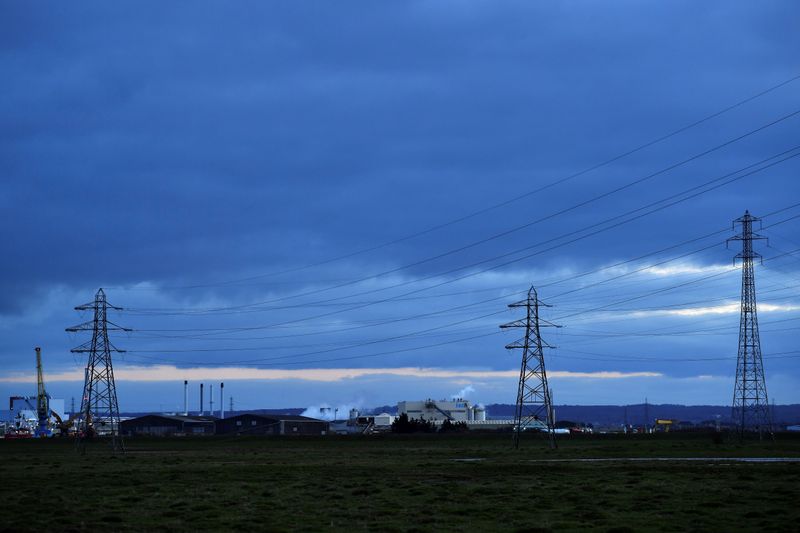LONDON (Reuters) -Britain should have enough electricity to meet demand over the summer months, the country’s National Grid Electricity System Operator (ESO) said on Thursday, even though peak demand could be slightly higher than last year.
Electricity demand is not likely to be as low as last year when Britain was in strict coronavirus lockdowns during the spring and early summer and will be more in line with previous years, National Grid ESO said in its annual summer outlook.
Peak electricity demand is expected to be 32 gigawatts (GW), up 500 megawatts (MW) from last summer. This compares to about 50 GW in winter months.
Minimum electricity demand is forecast to be 17.2 GW, but not as low last summer’s 16.2 GW, as COVID-19 restrictions are expected to be relaxed in Britain from April to June, it said.
Last year, in spring and early summer, minimum electricity demand fell as much as 17% compared with pre-pandemic expectations.
National Grid’s annual summer outlook report is designed to help the power market to prepare for the summer period.
“While there remains a degree of uncertainty around COVID-19 and the associated impact on demand, summer 2021 is not expected to be as operationally challenging as spring/summer 2020 and we expect that the necessary tools will be in place to enable safe, reliable, efficient system operation,” National Grid ESO said.
National Grid ESO expects an increased likelihood of periods when variable generation alone, namely renewables, will exceed minimum demand between mid-June and early August.
National Grid also published its summer outlook for gas on Thursday. It forecasts summer gas demand at 32.4 billion cubic metres (bcm), slightly lower than last year’s 32.5 bcm, owing to to a reduction in gas-fired electricity generation.
Total gas supply is seen at 32.4 bcm, against 33.1 bcm last summer.
The volume of liquefied natural gas (LNG) delivered to Britain is also expected to be lower than the previous two summers at 5.7 bcm because of competing markets, but pipeline flows from Norway will be higher this summer.
(Reporting by Nina ChestneyEditing by David Evans and David Goodman)





















